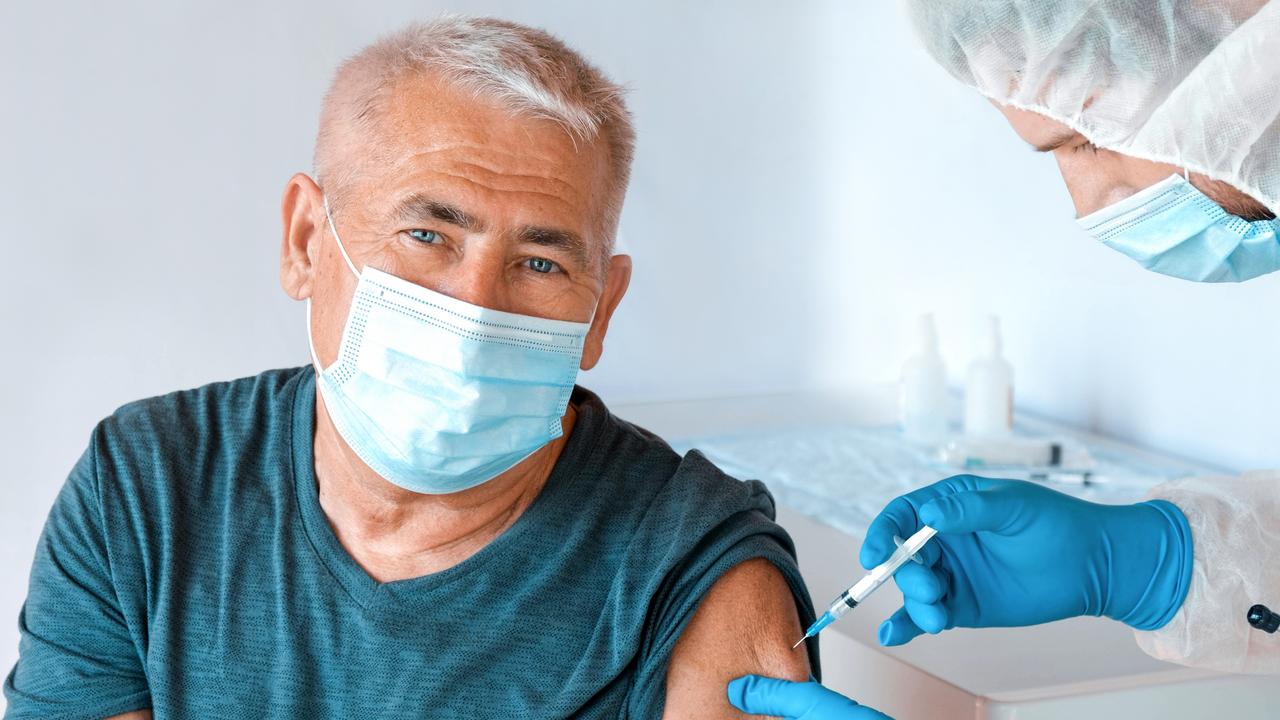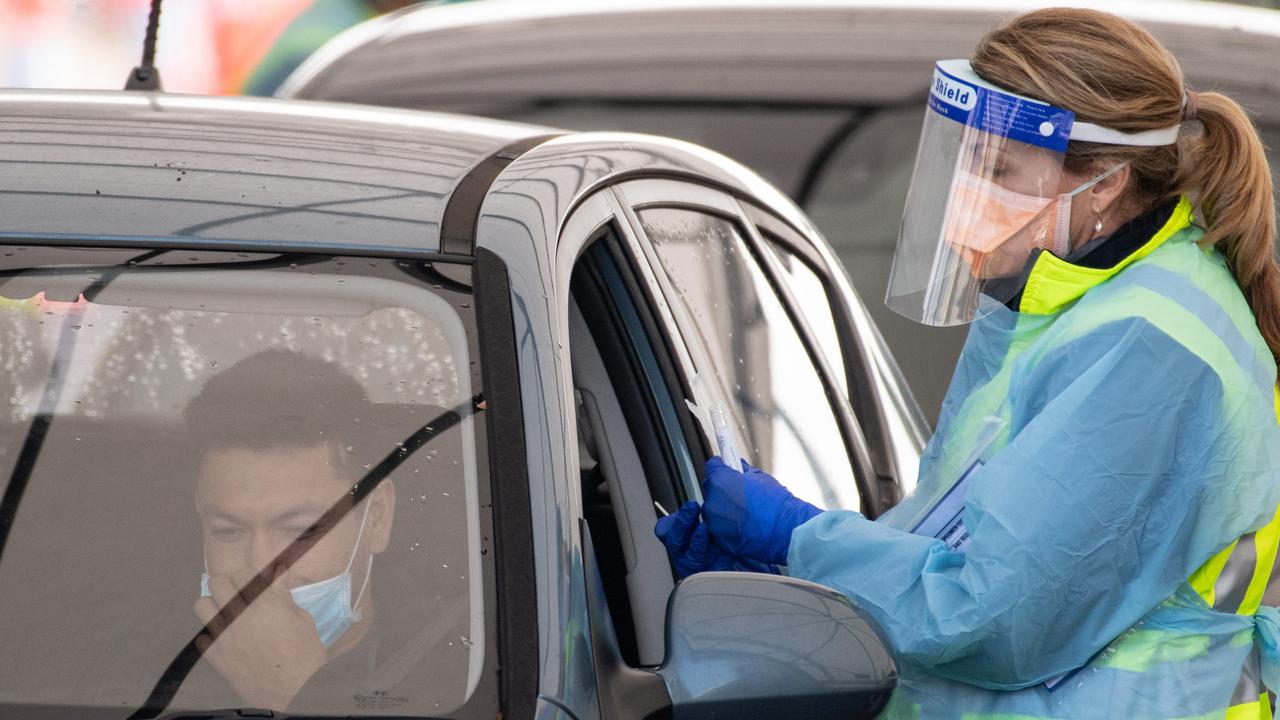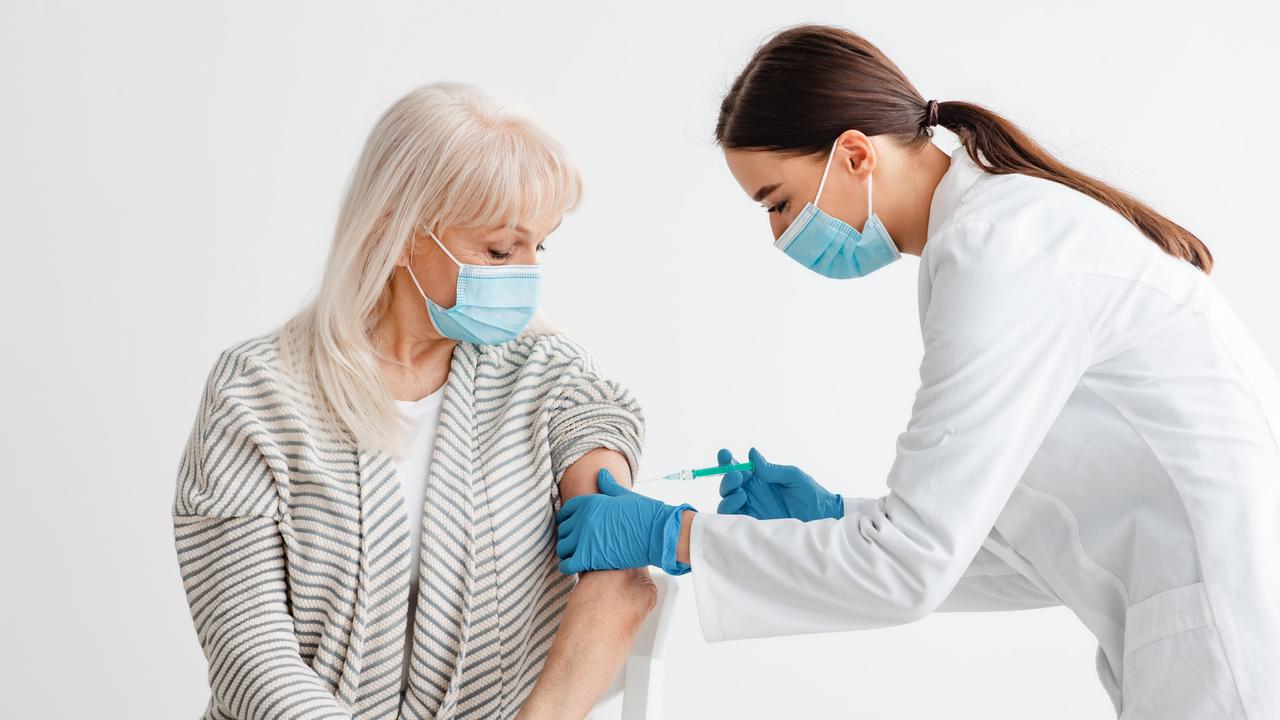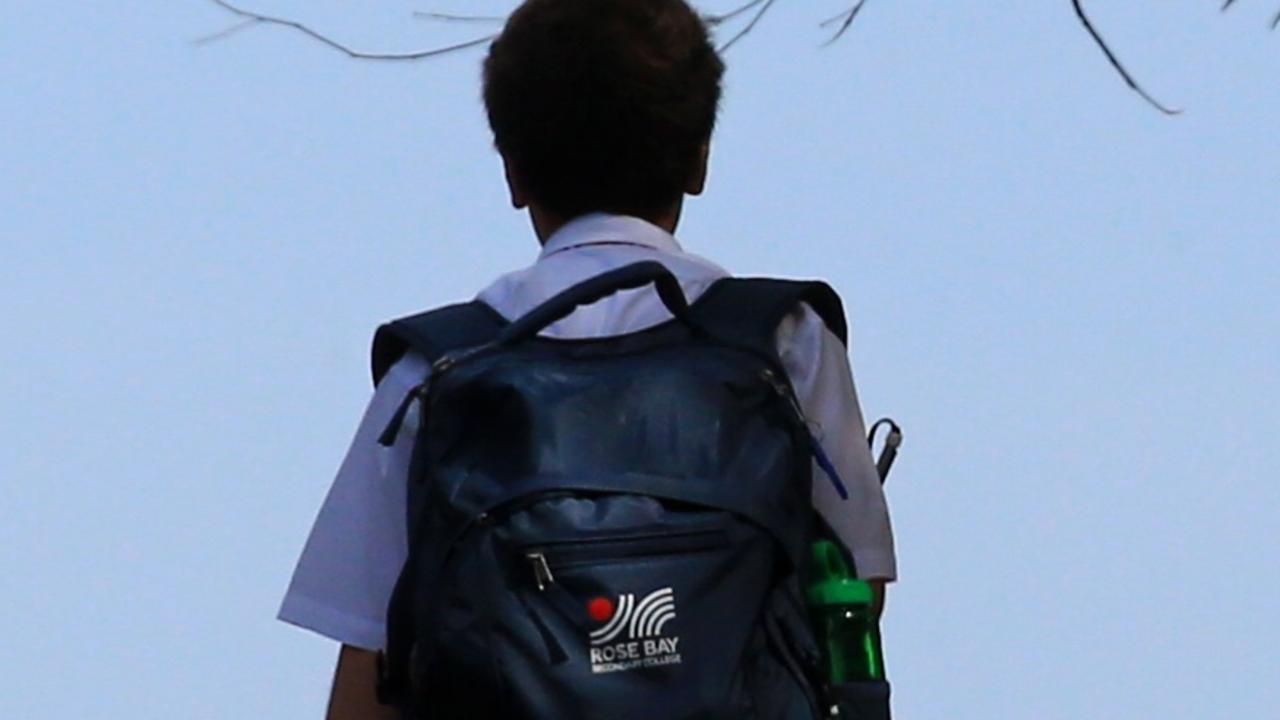Everything you need to know about Delta and Delta Plus
It’s the super spreading Covid-19 variant terrifying health experts and now it has an even more infectious cousin: Delta Plus.
It’s the most infectious form of Covid-19 yet. The Delta variant emerged in India in October 2020 and was declared a variant of concern by the World Health Organisation in May.
Just six weeks later nearly every case of Covid diagnosed in the UK is the Delta variant. And it has so far spread to 92 countries, with the World Health Organisation declaring it is now the most dominant version of the virus on the planet.
It’s 97 per cent more infectious than the original virus and it’s more than twice as likely to send you to hospital.
Fleeting contact such as walking past an infected person in a shopping centre is all it takes for this infection to spread.
Its arrival on our shores quickly killed Australia’s Covid zero status; it has terrified Australia’s top doctors and has prompted state premiers to lock 12 million Australians in their homes.

WHAT IS THE DELTA VARIANT?
The original version of the Covid-19 virus is known as the Wuhan strain, it’s the infection that was circulating in China in December 2019 and it is the reference point used by scientists studying the virus.
Viruses mutate constantly and CSIRO geneticist and pathogen expert Professor Vasan Vasan said more than 12,000 changes have occurred to the Covid virus since December 2019.
When these changes are significant enough to make the virus more transmissible or more deadly, the World Health Organisation lists them as a “Variant of Concern”.
There are currently four variants of concern: the Alpha variant that emerged in the UK in December last year which is 29 per cent more transmissible than the Wuhan virus.
The Beta variant which emerged in South Africa in December 2020 and is 25 per cent more transmissible than the Wuhan virus.
The Gamma variant that emerged in Brazil in November 2020 which is 38 per cent more transmissible.
And the Delta variant.
The Alpha variant has nine mutations in the spike including N501Y and deletions in 69, 70 and 144.
The Beta variant has 10 mutations in the spike including N501Y, E484K and K417N.
The Gamma variant has 12 mutations in the spike including N501Y, E484K and K417T.
The Delta variant has seven mutations in the spike but not in 401, 484 or 417 positions.

HOW TRANSMISSIBLE IS THE DELTA VARIANT?
A study in the medical journal Eurosurveillance which compared the spread rate of all the Covid variants concluded Delta was 97 per cent more transmissible than the original Wuhan strain.
“That makes this variant extremely dangerous because of the way cases can grow exponentially. For example, after just three chains of transmission, there would be eight times as many cases on average,” Professor Michael Plank from the University of Canterbury said.
“Where the Wuhan virus might have caused 10 cases, the Delta variant could cause 80 cases in the same time, which would quickly make it impossible to control without a lockdown,” he said.
Cases of the Delta variant in the United Kingdom are doubling roughly every 11 days and people with it are infecting more of the people they live with than in the past.
The reason Delta is so infectious is “the virus is becoming more used to living in humans and thriving,” University of Sydney infectious diseases expert Professor Robert Booy explained.
“It’s much more human adapted, it not only attaches well in the respiratory tract, but once it’s got in, instead of having to burst out, and then go to another cell it can go sideways into the next cell more quickly,” he said.

THERE IS A NEW MUTATION CALLED DELTA PLUS. WHAT IS THAT?
As it spreads the Delta variant continues to change and scientists have now isolated a new version they are calling Delta Plus which they think may be even more transmissible.
It has one new addition a K417N mutation of the virus’s spike protein. The virus uses the spike protein to attach to our cells. The K417N mutation is also in the Beta version of the virus that emerged in South African.
There have been at least 40 cases of Delta Plus in India, 83 in the US, 36 in the UK, 22 in Portugal, 18 in Switzerland and 15 in Japan.
WHEN DID DELTA REACH AUSTRALIA?
The first recorded case of the Delta variant in Australia was in May in a couple living in Sydney’s Eastern suburbs who did not appear to spread it to anyone else.
A few weeks later in June, members of a Melbourne family who visited NSW tested positive for the virus and spread it. Genomic sequencing linked these cases to a traveller who returned to Victoria from Sri Lanka in May.
Most of the other cases in Melbourne’s recent outbreak were caused by the Kappa variant, which also originated in India.
The latest lockdown in Sydney was caused when a limousine driver for flight crew tested positive for the Delta variation and that case was an exact genomic match with a sequence in the United States.

DO YOU GET SICKER WITH DELTA?
People infected with Delta are nearly twice as likely to end up in hospital, compared with those infected with other variants a recent Scottish study found
An analysis of 38,805 cases in England found hospitalisation rates from the Delta variant were 2.61 times higher than with the Alpha variant.
There is also a concern that the Delta variant may be better at attacking lung cells.
WHAT ARE THE SYMPTOMS?
Loss of smell and a cough were the key symptoms of the original version of Covid but people with the Delta variant are more likely to experience symptoms of a common cold.
A symptom-tracking app used by four million people in the UK (ZOE Covid Symptom study) records the top symptom in people under 40 as a headache, followed by a sore throat, runny nose and fever.
A cough is now only the fifth most-common symptom, and loss of smell is not listed among the top 10 symptoms.
DOES IT HAVE A SHORTER INCUBATION PERIOD?
Most likely not. A Public Health England study found on average it took four days for others in a household to develop symptoms after one person caught the virus, which is similar to other variants.

DO VACCINES PREVENT THE DELTA VARIANT?
The Pfizer, AstraZeneca and Moderna vaccines do work against the Delta variant but not as effectively as they do against the original Wuhan virus.
People are 33 per cent protected against symptomatic Delta after one dose of the Pfizer and AstraZeneca vaccines.
After two doses of the AstraZeneca jab protection against symptomatic cases of Delta rises to 60 per cent, this compares to the 82 per cent protection against the original Wuhan strain.
People who have two doses of the Pfizer shot are 88 per cent protected against symptomatic cases of the Delta variant compared to the 95 per cent protection against the Wuhan version.
Moderna said this week blood samples from fully vaccinated people produced antibodies against multiple variants and there was only a modest reduction in antibodies against the Delta variant.
Vaccination is very effective at preventing hospitalisation from Delta.
A Public Health study in England found people who had one dose of AstraZeneca were 71 per cent less likely to be hospitalised, compared with unvaccinated individuals.
A single dose of Pfizer was 94 per cent effective against hospitalisation.
People who had two doses of Pfizer were 96 per cent protected against being hospitalised, those who had two doses of AstraZeneca were 92 per cent protected against being hospitalised.

ARE YOUNGER PEOPLE MORE LIKELY TO GET IT?
There are concerns the Delta variant will spend more widely among children and most of the Delta cases in the UK have been in younger people.
The reason it is spreading among the young is not because they are more susceptible but because they are the least likely to be vaccinated.
NSW chief medical officer Kerry Chant has said she expects the Delta variant to be more transmissible among children in Australia because they are not vaccinated.
Already a number of children have been linked to Sydney’s Bondi Covid cluster. A childcare centre in Sydney was closed for cleaning after a child tested positive and a primary school had to move to remote learning after a child tested positive.
According to a recent report in the BMJ, the virus is now spreading rapidly through primary and secondary schools in the UK.
US infectious diseases expert Dr Anthony Fauci has said children are “more likely to get infected” with the Delta variant but not because they were more susceptible.
“So it isn’t that they (children) are more susceptible, but this virus is a more transmissible virus,” he told US television program CBS This Morning.
In the US vaccines can be used in children as young as 12 and they are being tested in toddlers and babies as young as six months.
In Australia the Pfizer vaccine can be used in people as young as 16 but an expert government committee has advised against giving the AstraZeneca jab to people aged less than 60 years of age because of the risk of rare blood clots.
DELTA BY THE NUMBERS
CSIRO Covid genetics expert Professor Vasan Vasan has studied the worldwide Covid genetic database for numbers of Delta infections in Australia and around the world.
Not every infection gets genetically sequenced but this is what the data shows.
DELTA
105,745 Globally
ACT 1
NSW (Sydney) 135
NT 27
QLD 35
SA 12
VIC 26
WA 31
Source: Analysis of GISAID’s 2,168,282 SARS-CoV-2 virus sequences by CSIRO
ALPHA VARIANT
950,777 Globally
NSW 168 (162 in Sydney)
NT 10
QLD 102
SA 46
VIC 83
WA 49
BETA
26,717 Globally
ACT 5
NSW 12 (10 in Sydney)
NT 1
QLD 24
SA 4
VIC 5
WA 13
GAMMA
45,122 Globally
NSW 7 (6 in Sydney)



